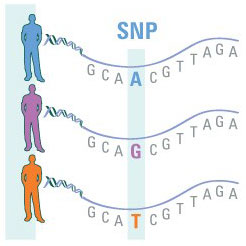What Is
Nutrigenomics / NutriGenetics?
While it is true that humans are very similar genetically, but we all possess slight differences in our unique genetic blueprint, which set us apart from one another. This is what contributes the different and unique health expression in every one of us.

Nutrigenomics
Folate is a great example of how the food we eat can affect our genes. Folate is needed by the body to make DNA, and deficiency in this nutrient has been connected to a higher risk of developing cancer (low folate levels lead to changes in the DNA strands which make them more susceptible to breaking).
As folate is vital for DNA synthesis, it also plays an important role during fetal development when cell division and growth are at their peak. Specifically, folate ensures that the spinal cord of the baby develops properly. It is so crucial to this process that women are strongly advised to take folic acid supplements before and during pregnancy.


Nutrigenetics
A great example of this is lactose intolerance. People who are lactose intolerant are unable to digest the natural sugars present in milk and other fresh dairy products. This is because the gene responsible for making the necessary enzyme (lactase) is “switched off”, leaving their bodies unable to produce it. As a result, these people react badly to consuming dairy products, with symptoms such as abdominal pain, bloating, diarrhoea and nausea.
In Short
| Nutrigenomics | Nutrigenetics |
| Allows us to understand how vital nutrients can play a significant role in influencing our genes expression. | Allows us to understand the effect of genetic variation has on the interaction between diet and disease or on nutrient requirements. |
| Assisting us to promote optimum nutrition to an individual. | Assisting us to determine an individual’s risk of developing a certain disease. |
Schedule a 1-on-1
Consultation Today
Address: Block 231 Bain Street, #04-49 Singapore 180231.
Mobile: +65 9854 6806

